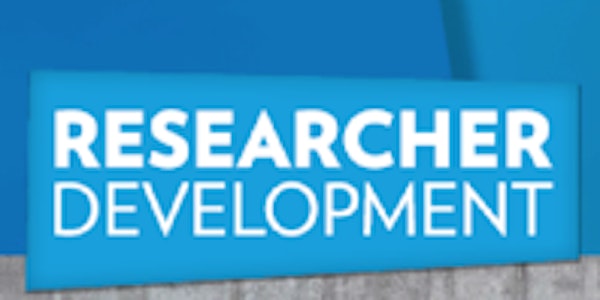
Channel your inner entrepreneur: How to take your idea to market
Date and time
Location
1C42 (Room 42, Level C, Building 1; behind Careers UC, above the refectory))
Kirinari Street University of Canberra Bruce, ACT 2617 AustraliaDescription
Channel your inner entrepreneur: How to take your idea to market
Interested in translating your research into a cool tool or product?
Got an innovative idea that you think could make a difference or earn you money?
Do you think you have a novel solution for a real world problem?
Whether your idea is big or small, from the sciences or humanities, this session is for you.
You will learn:
1. Who owns your idea (is it you or the organisation/University you are affiliated with?) and how to protect it
2. What intellectual property (IP), patent and commercialisation mean and why they are important, and
3. Where to go for advice and what support is available within UC, the Canberra community and beyond.
- Plus, submit a burning question you have about commercialising your research or idea when you register and not only will it be answered at the event, but you could win a $250 cash injection to help you get started.
The brief introduction and Q&A session above will be followed by a panel discussion, where five researchers who have succeeded in taking their research idea to market, or are on the journey from ‘thought bubble’ to ‘next big thing’, will share their insights including issues encountered and how they overcame them.
Panellists
Dr Victor Pantano is the Associate Vice President of Innovation and Strategic Initiatives at the University of Canberra. He has held previous positions including Director of Technology Transfer at the ANU and Investment Director at ANU Connect Ventures where he started and invested in multiple companies. In 2009 he spun a company out of the ANU and grew this company, as its CEO, to eventual exit in 2014 for $80M. He is currently a director on a number of start-up boards and is one of Australia’s most experienced university innovation professionals.
Dr Debbie Saunders is a Founding Director of Wildlife Drones, and a Conservation Ecologist at the Australian National University. Her extensive conservation research experience focusses on improving our understanding of threatened migratory birds and the complex ecosystems they depend on. She recently succeeded in translating her long-term research into a $1 million habitat restoration project for a diversity of threatened species. She has also been instrumental in the development of the world’s first robotic radio-tracking drone for remotely locating tagged animals. Currently she is taking this drone technology to next level with the creation of Wildlife Drones, a commercial-ready product for researchers, pest species managers and conservation NGOs internationally. She has received an ACT Innovation Award as well as an ACT Government Innovation Connect grant for her creative business solutions for challenging research problems. Debbie believes that drones are a highly valuable and flexible tool that provide unprecedented opportunities for new insights into the world’s most complex and fascinating natural ecosystems.
Dr Ines Atmosukarto completed PhD studies in molecular biology at the University of Adelaide. She was a Research Scientist and Project Leader at the Indonesian Institute of Sciences (LIPI) and has been the CSO of an Indonesian drug discovery company. Ines is the Managing Director/Chief Executive Officer of Lipotek, a privately held Australian company with laboratories and offices on the campus of the Australian National University. The company operates primarily as a research and development entity seeking to identify, protect, and commercialise adjuvant and delivery technologies to improve vaccine formulations.
Dr Rob Sok finished his PhD in Computational Chemistry in Groningen (the Netherlands) in 1994, then started to work for one of the biggest chemical companies in the world, BASF-AG in Germany. The central informatics department, where he was placed, was a hub for testing innovative workflows from Universities within the context of the real world. After spending five years in industry, in 1999, he was given the opportunity to go back to research, at the Australian National University (ANU) in Canberra. The group that was emerging at that time would come to focus on novel 3D scanning methodologies and the analysis of massive 3D datasets. During the eight years that Rob worked there it became clear that the technology had great commercial potential and in 2007 a company (Digitalcorelabs) was started that focussed on providing services to the oil and gas industry and he joined the company as the sole employee. Through name changes and a merger the company grew to a size of approximately 85 people and was servicing oil and gas companies all over the world. In 2014 it was bought up by an American company for 76 million dollars and was then swallowed by an even bigger American company not too long after. During these years Rob decided that he wanted to diversify and together with his wife started Zeitgeist Coaching and Training and operated this next to his day-to-day work, providing organisational development and leadership training to companies and individuals. In 2017, Rob made the switch back to the ANU, to the same research group, continuing to develop the technology while, at the same time, delivering executive coaching, leadership and organisational development training.
Fifth panellist to be announced.
This session will be followed by afternoon tea.